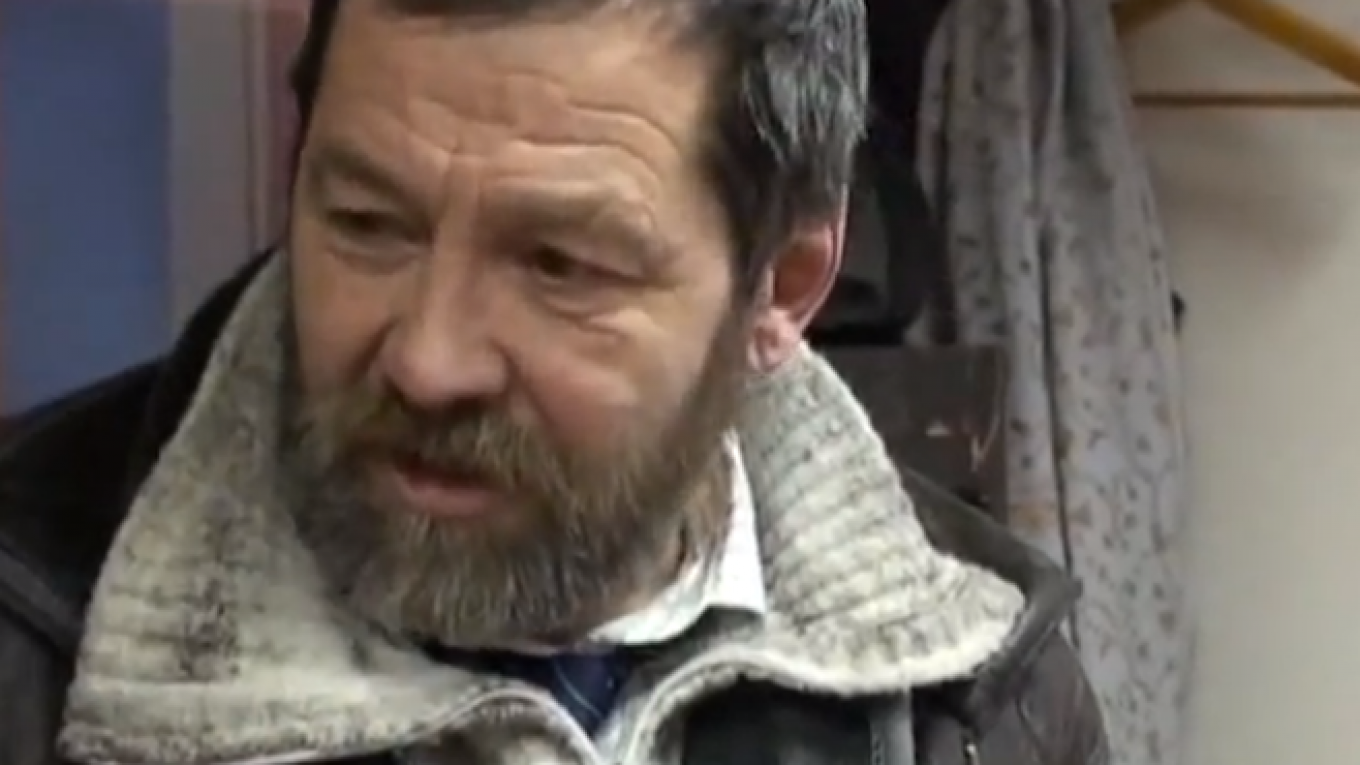Russia has released from custody opposition activist Sergei Mokhnatkin, who gained prominence among fellow activists for what he said was an attempt to protect a woman from police brutality at a protest rally, and who has been charged with violence against police.
Mokhnatkin's attempt to protect the woman had already earned him a term in prison, but he was jailed again last New Year's Eve on a similar charge but in connection with a different incident. A court ordered Mokhnatkin to undergo psychiatric evaluation, but on Wednesday he was released pending trial after his defense appealed to the European Court of Human Rights, lawyers said.
"Mokhnatkin has been freed," lawyer Nikolai Polozov, who has defended other opposition activists in high-profile cases, said via Twitter.
Mokhnatkin's lawyer Ksenia Kostromina said he was discharged from the Serbsky psychiatric institute earlier in the day, having been told that his evaluation was complete and he was free to go, the Open Russia activist website reported.
No results of the psychiatric evaluation have been released, but Kostromina insisted that her client was a sane man, the Slon.ru news site reported.
"The only obsessive idea that he has is that Russia should be a law-abiding state," Kostromina was quoted as saying. "If that is a sick idea, then he is totally sick in the head."
The release from the psychiatric institute, where Mokhnatkin had been held since late September, followed an appeal by another of his lawyers, Karinna Moskalenko, to the European Court of Human Rights earlier this week, Open Russia reported.
Moskalenko argued that the Serbsky institute imposed a prison-style security regime, with patients banned from leaving their rooms without an escort, and any telephone calls limited to only a half-hour slot late in the afternoon. Moskalenko said that continued custody presented a risk to Mokhnatkin's health, weakened by his repeated hunger strikes throughout his ordeal, according to excerpts from her appeal posted on Open Russia.
Mokhnatkin told Slon.ru that the order of psychiatric evaluation could be a sign that court officials were eager neither to convict him nor to let him go free, and compared his case to the sentence to mandatory psychiatric treatment handed down to one of the participants in a 2012 anti-Kremlin rally, Mikhail Kosenko.
"I think the court just wants to push me over to medics, as with Kosenko, to shed responsibility," he was quoted as saying.
Mokhnatkin seemed to have been cast as an opposition activist almost against his will: His first arrest came during a December 2009 rally, when he said he had been simply passing by but saw police officers beating a woman and tried to intervene. He was charged with violence against police officials and sentenced to 2 1/2 years in prison, but was pardoned by then-President Dmitry Medvedev in early 2012.
His second arrest, which seemed like a replay of the previous case, took place during another rally at the same location, downtown Moscow's Triumfalnaya square, on New Year's Eve 2013. The charge was also the same.
A Message from The Moscow Times:
Dear readers,
We are facing unprecedented challenges. Russia's Prosecutor General's Office has designated The Moscow Times as an "undesirable" organization, criminalizing our work and putting our staff at risk of prosecution. This follows our earlier unjust labeling as a "foreign agent."
These actions are direct attempts to silence independent journalism in Russia. The authorities claim our work "discredits the decisions of the Russian leadership." We see things differently: we strive to provide accurate, unbiased reporting on Russia.
We, the journalists of The Moscow Times, refuse to be silenced. But to continue our work, we need your help.
Your support, no matter how small, makes a world of difference. If you can, please support us monthly starting from just $2. It's quick to set up, and every contribution makes a significant impact.
By supporting The Moscow Times, you're defending open, independent journalism in the face of repression. Thank you for standing with us.
Remind me later.






